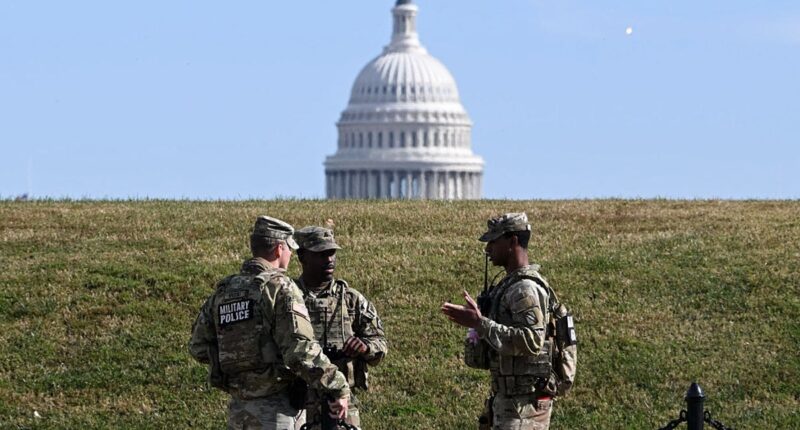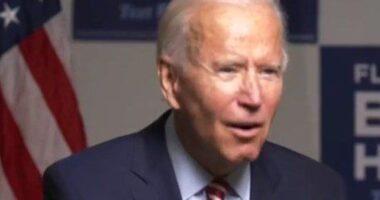Donald Trump’s deployment of National Guard troops to Washington, D.C. will extend through the new year into the spring, according to new orders reported by the Associated Press.
Trump deployed Guard troops to the city this past summer after the high-profile assault of a Republican White House staffer during a carjacking attempt. Supporting federal law enforcement agencies including ICE, U.S. Park Police and others, Guard troops could be seen milling around landmarks and transit stations around the city. Some were relegated to yard work and cleaning duties while the president claimed that they were needed to suppress crime.
In at least one instance, on Halloween, the Guard did come in handy. Police struggled with large groups of high-school aged teens congregating in open lots in Navy Yard and other areas of the city, and National Guard troops were called to support city police in dispersing crowds.
Now, new orders issued on Tuesday command the D.C. contingent of the Guard to maintain its presence in the city through February of 2026. Numbers of Guard troops have been around 2,375 since the order was issued earlier this year, but that number includes Guard troops from several states that contributed to the effort and which still plan to reduce their deployments to the city by the end of November. The D.C. National Guard, which is under the direct control of the president and the Secretary of Defense, has 949 Guard troops deployed around the city.
Some states involved in the D.C. deployment, which includes Guard forces from Ohio, South Carolina, Georgia, West Virginia, Alabama, Louisiana and Mississippi indicated to the Associated Press that their deployments could be extended alongside the D.C. Guard, but no formal announcements have been made by any states on the list.
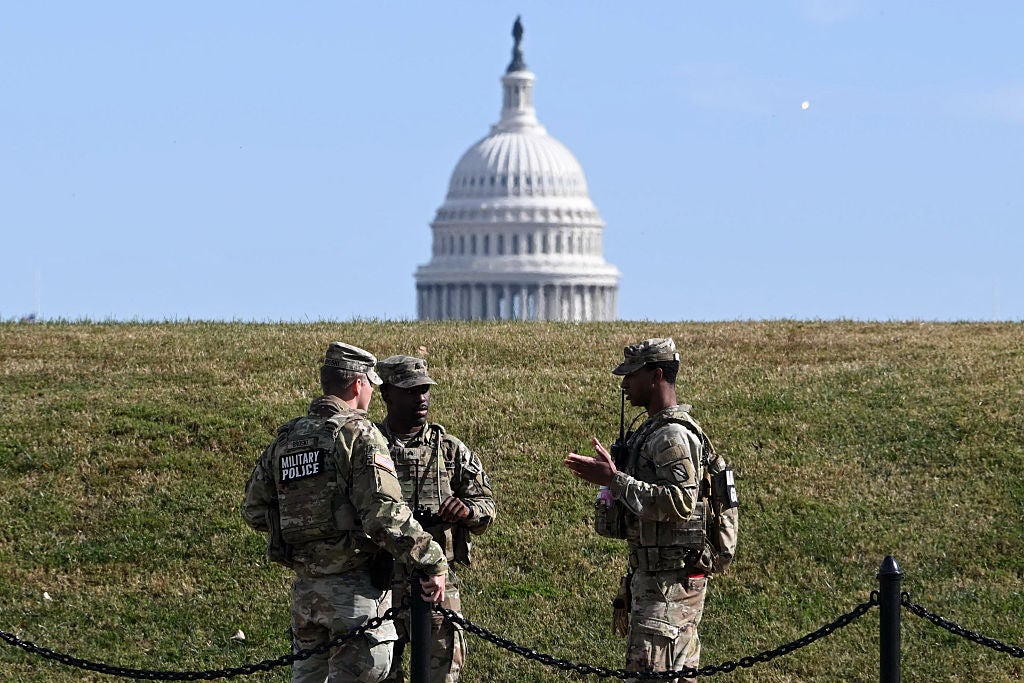
D.C. officials are still half-heartedly battling the president, cogniscent of simmering anger among longtime city residents over the deployments but largely unable to counter the power of a unified White House and Congress, thanks to the District of Columbia’s special status. Attorney General Brian Schwalb is suing Trump in court over the D.C. Guard’s deployment, but the case hasn’t reached a resolution. Some have turned to working with the Guard directly to address local community beautification efforts, seeing a mixed opportunity.
Meanwhile, the political blowback from the situation is beginning to emerge. Polls show that the deployment is extremely unpopular among city residents, with federal law enforcement shouldering much of the vitriolic response. Clashes between residents and law enforcement during raids and arrests were common during the summer.
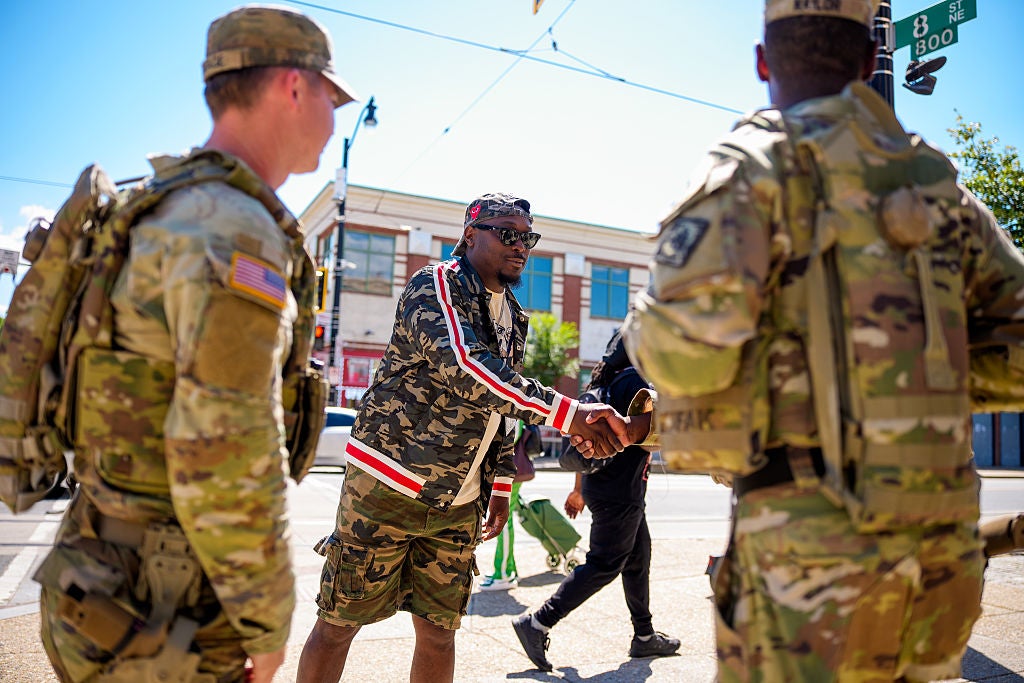
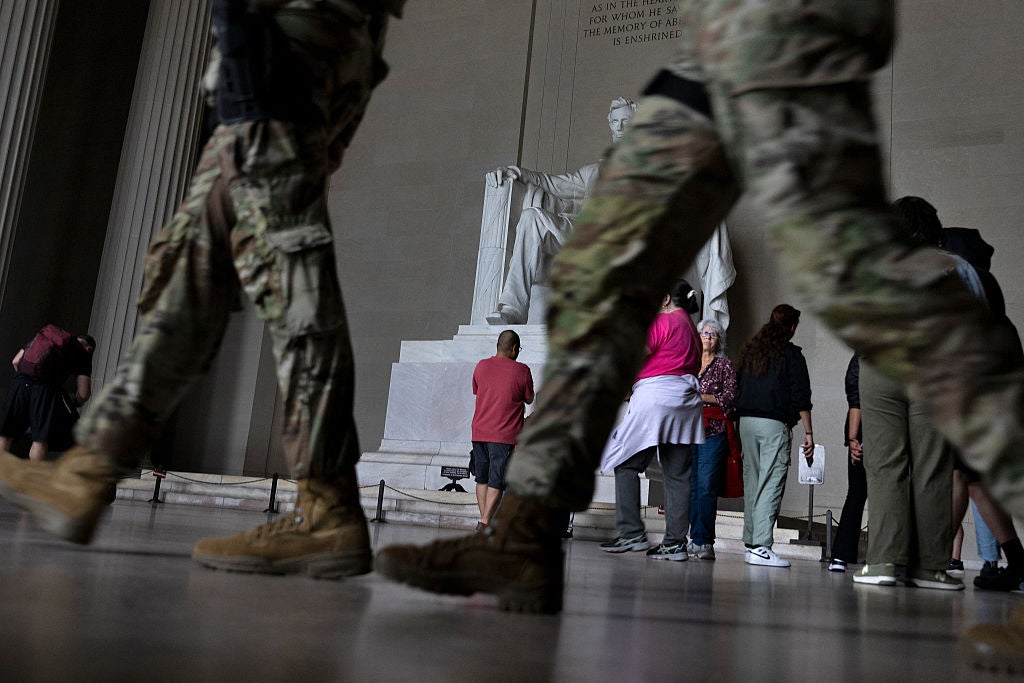
A spree of announcements from Democratic politicians in the region indicate that there may be a shakeup at the ballot box next year, with officials including Mayor Muriel Bowser facing serious challenges. Del. Eleanor Holmes Norton, the District’s nonvoting member of Congress, is facing mounting pressure to step down after a series of confusing and contradictory statements about her future plans indicated that her own staff was repeatedly walking back comments she made to journalists. That pressure is only growing after it was revealed that she was victimized by credit card scammers in her home this year and was described as suffering from the early stages of dementia in a police report. Her staff issued a denial, but wouldn’t say if she’d authorized an aide to have power of attorney.
Complicating the issue is the federal government shutdown. With Congress now in its 37th day without a deal to fund federal agencies, pay for the hundreds of Guard troops deployed in D.C. and other cities where Donald Trump has expanded his anti-crime efforts remains in danger. In recent months, Trump has expanded his crime suppression campaign to Memphis, Tennessee and threatened to do so in San Francisco. In Portland, Oregon, his administration remains fiercely locked in battle with state officials over the matter in the courts.
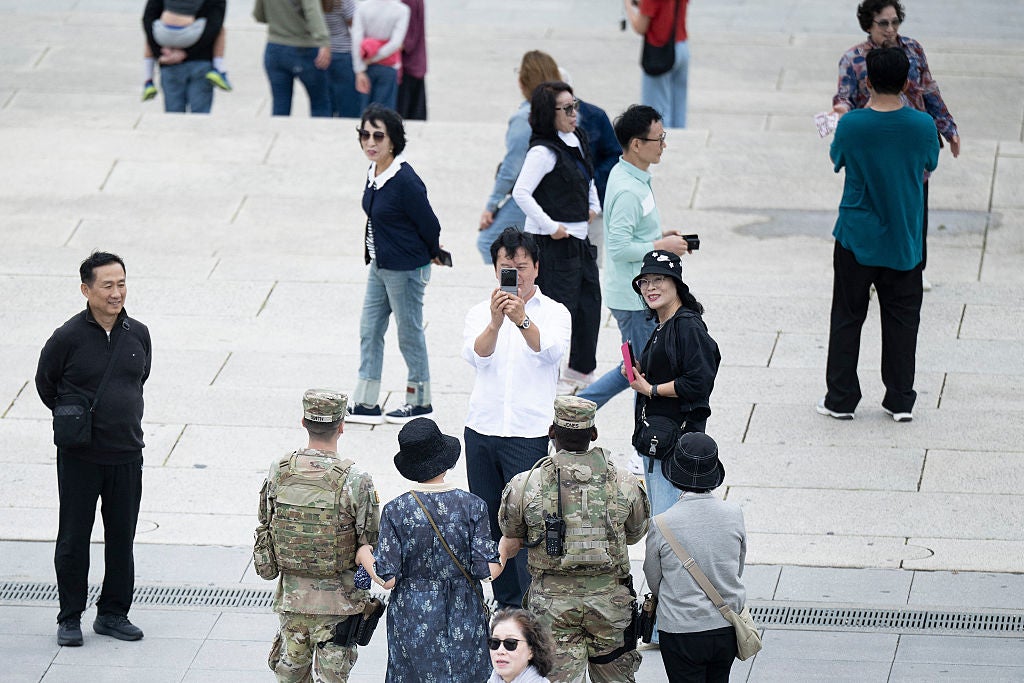
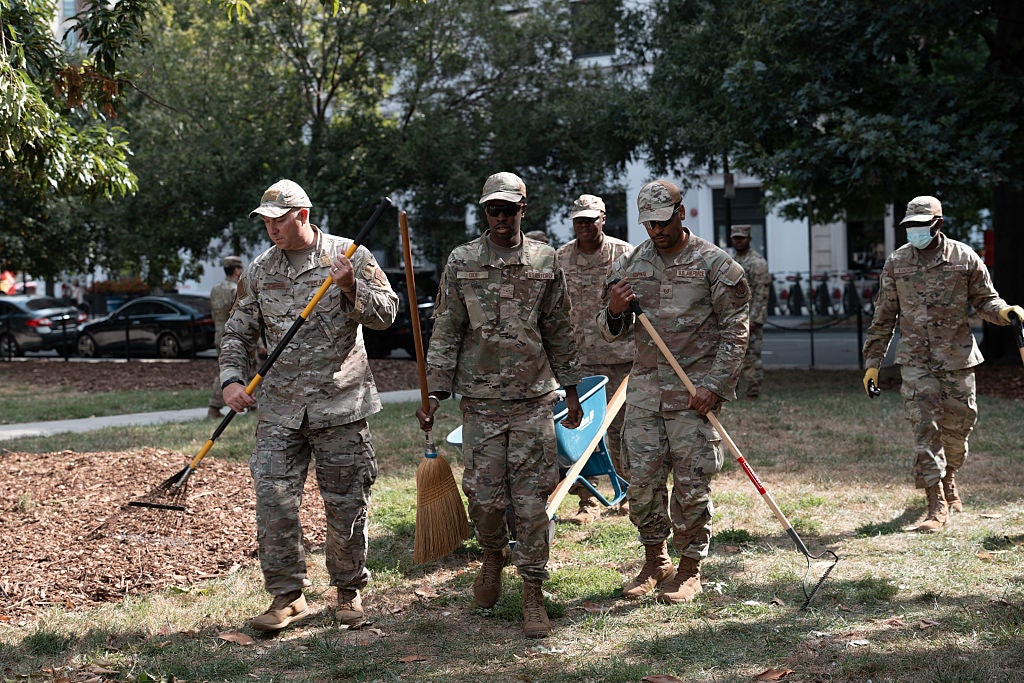
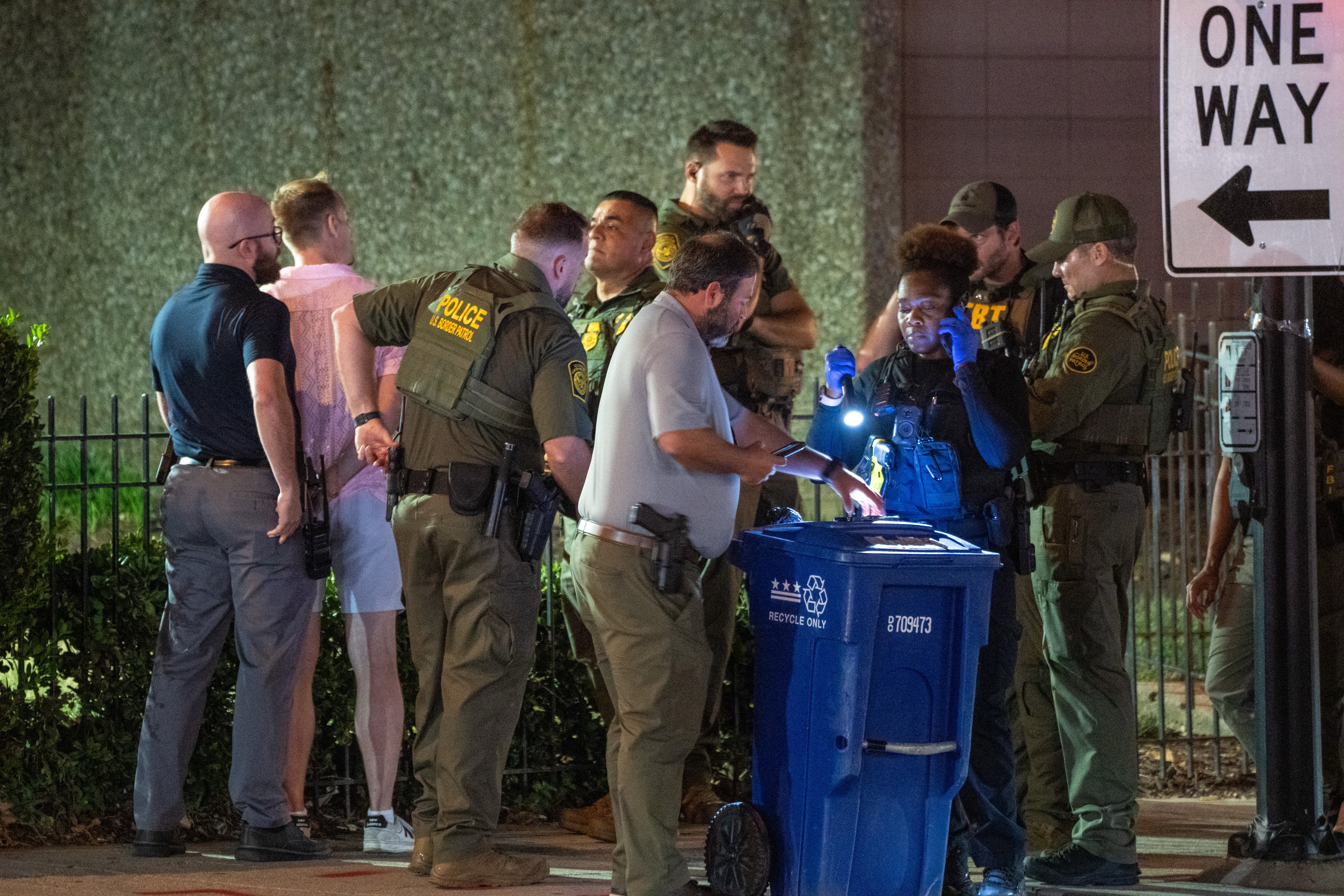
White House officials and their allies at the Defense Department have moved money around (possibly illegally) in order to keep troops and federal civilian employees paid during the shutdown, but many have been forced to endure furloughs as funds become tighter and tighter.
On Thursday, lawmakers in the U.S. Senate were still talking about a deal to end the shutdown but Democrats had no indication as of the end of the D.C. work week (which ends at lunchtime on Thursday) that House Republicans would honor any arrangement struck in the upper chamber.
In Washington, city residents sent the White House a clear message about the deployment on Thursday. A jury of city residents found a man not guilty even after his lawyer admitted to them that he’d angrily tossed a sandwich at members of federal law enforcment during the earliest days of Trump’s D.C. “takeover”.
It was a second humiliation for the Department of Justice, which initially failed to convince a grand jury to indict Sean Charles Dunn on a more serious felony charge at all.
